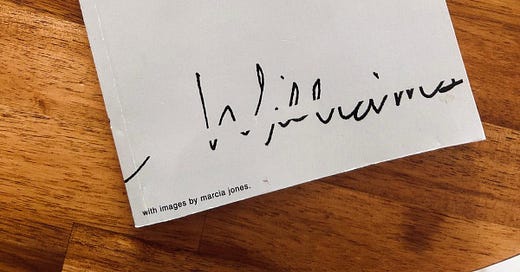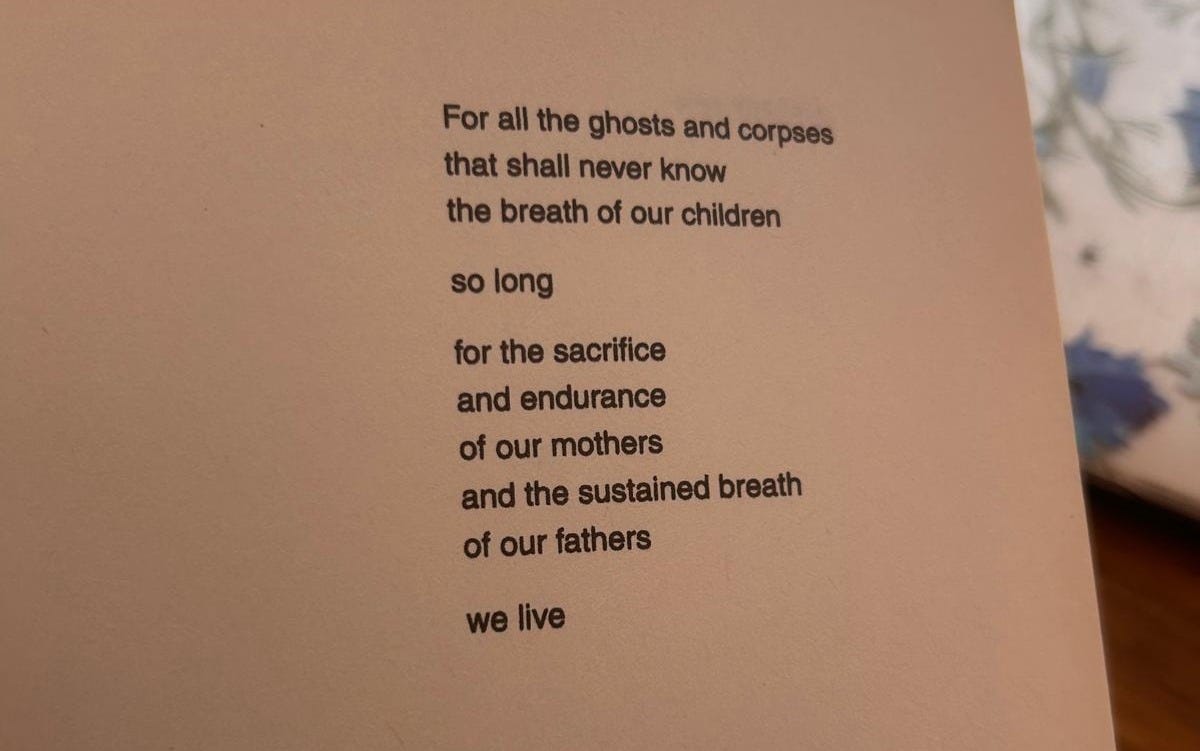As someone who’s just beginning to explore poetry, I wasn’t sure what to expect when I picked up She, a collection of short poems and visual art by Saul Williams. What I found was a deeply emotional, strikingly original work that invited me into an intimate and layered story, one that feels at once personal and universal. It was a challenging read in some places, but also a transformative one. I didn’t always understand the poems right away, but they made me feel something; curiosity, discomfort, awe, recognition, and for me, that was a powerful introduction to what poetry can do.
At the center of this collection is the nameless “she”: a partner, a mirror, a mystery, a muse. Through her, Williams explores the complexity of romantic connection, creative identity, and emotional vulnerability. It’s not a straightforward love story. It’s more like a series of encounters, conversations, and confessions that move between tenderness, tension, grief, and joy.
What makes She unique, especially for someone new to poetry, is its form. Williams comes from a background in hip-hop, spoken word, and performance art, and that rhythm and immediacy shine through. His poems don’t sit still; they pulse, provoke, and often feel like they’re meant to be spoken aloud. There’s a musicality in the way he uses language, sometimes raw, sometimes lyrical, that reflects the influence of hip-hop culture while also pushing poetic boundaries.
“she asked that i remove my dreams
before entering her home
one cannot enter a courtroom bearing arms”
This poem made me think about the early stages of a relationship, when you want to present a version of yourself that’s likeable, maybe even idealized. But at the same time, you’re afraid of being truly seen, with all your flaws, desires, and vulnerabilities. The idea of “removing dreams” before entering someone’s home felt like a metaphor for letting go of ego, expectation, and maybe even control. And the line about the courtroom, “one cannot enter a courtroom bearing arms,” struck me as both a warning and a truth. In love, just like in a courtroom, we risk being judged. But we also have to disarm ourselves in order to be known. That tension, between self-protection and surrender, is at the heart of so many relationships, and I loved how this poem captured that so simply and sharply.
“sometimes our thoughts and feelings
are our most prized possessions
and then there are times
to let go of your possessions
and wander”
I wasn’t sure why I liked this part at first as well, but the more I sat with it, the more it spoke to me. It reminded me that sometimes we hold too tightly to our inner narratives, our thoughts, feelings, and stories about who we are. We treat them like treasures, or anchors. But this poem gently suggests that it’s okay to let go. That wandering, emotionally, spiritually, even creatively, is valuable too. It doesn’t always have to be about knowing or controlling everything. Sometimes, stepping into the unknown can be freeing.
Not every poem in She is easy to read. One, in particular, explores a rape or sexual abuse incident with harrowing clarity. It’s difficult, visceral, and deeply unsettling. But I think that’s also what makes Saul Williams’ poetry so powerful, he doesn’t look away. He uses language to confront, to expose, and to hold space for pain as much as for beauty. It’s part of what makes this collection feel so human.
Ultimately, She was more than a book of poems for me, it was an experience of stepping into someone else’s world, but also into my own. It invited me to think about vulnerability, love, memory, and the stories we carry. It challenged me, surprised me, and moved me in ways I didn’t expect.
Ultimately with poetry, you don’t have to “get” every line. Just read with openness, and let the words work on you. Some may challenge you. Some may soothe you. And some, like these, might stay with you.
See you on Goodreads! Follow me here






